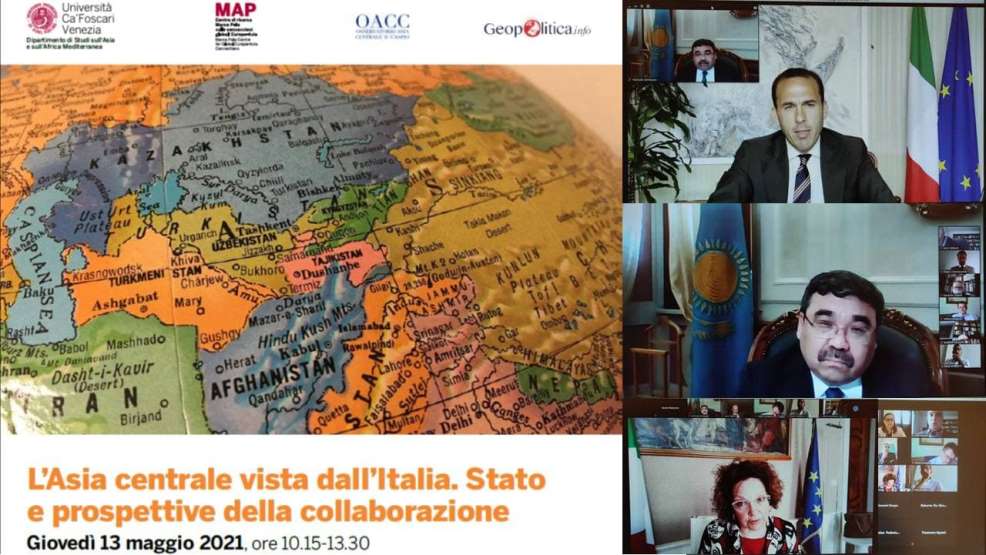Italian experts discussed Italy's vision to Central Asia

On May 13, 2021, an online conference was held on the topic «Italy's View to Central Asia. Status and prospects for collaboration».
The conference was organized by the Department of Asian and Northern African Studies at the Ca'Foscari University of Venice, the Centre for Global Europe-Asia Connections at the Marco Polo Research Center (MAP), the Observatory on Central Asia and the Caspian (OACC) and the Center for Geopolitical Studies «Geopolitico.info».
Opening the conference and welcoming the participants a researcher from the Ca'Foscari University of Venice and founding member of the OACC C.Frappi drew the attention of participants to the fact that despite the difficult epidemiological situation in the world, the consolidation and open dialogue between the scientific society on the topic of much debate only strengthened the confidence that the cooperation and interaction of specialized professionals have a positive impact on the development of modern society.
Rector of the Ca'Foscari University of Venice T.Lippiello, Deputy Minister of Foreign Affairs and International Cooperation of Italy M.Di Stefano, Ambassador of the Republic of Kazakhstan to Italy E.Sembaev, Head of the Department of Russia, Eastern Europe, Caucasus and Asia L.Serra, Deputy Director of MAP A.Ferrari and former Italian Ambassador to Kazakhstan and OACC member S.Ravanyan welcomed the participants.
The participants of the event presented reports, in which contained topical issues and discussions.
In his speech the Ambassador of Kazakhstan to Italy E.Sembayev noted the high level of bilateral cooperation between Kazakhstan and Italy. The significant role of Kazakhstan in Central Asia was noted.
The Ambassador stressed the importance of the Partnership and Cooperation Agreement of 1995 and the Enhanced Partnership and Cooperation Agreement of 2015, which was the beginning of new stage in the history of relations between Kazakhstan and the EU.
The new EU Strategy for Central Asia was noted. Ambassador also emphasized the Triangular Cooperation Programme between the EU, Kazakhstan and Uzbekistan on the expansion of economic rights and opportunities for Afghan women, supported by UNDP, as an example of fruitful cooperation in the Central Asian region.
The conference assessed the results of the development of relations between Italy and its Central Asian partners, taking into consideration both traditional vectors and those areas which may contribute to the widening and deepening of the cooperation.